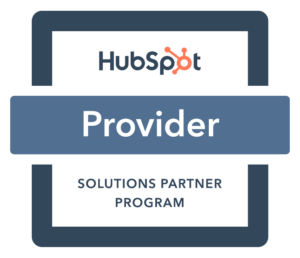This time I’m not asking a rhetorical question that I then will give you an answer by the end of the newsletter.
This time it’s something I’m exploring in my own business. So I’m asking. Everyone.

I think there isn’t a pat answer. Firstly, every company is different. It can depend on the maturity of the company. And on how many existing customers you have buying your established products. The answer can be different for you than it is for me. And different for any other marketers you know.
I come to it from more of a startup founder perspective. I need to build effective customer feedback loops for my business. At this point, I have a side project to do discovery interviews with marketers. To talk to them and listen to what their challenges are with MarTech and data. Above all, how they deal with those challenges today. What could make that easier. More product marketing then marketing communications.
I’m exploring doing something in the new year called Working Out Loud circles. It’s a framework for collaborative learning. A circle of 5-6 people come together for 12 weeks, to support each other on thier individual goals and projects.
I was on a call this week with someone who he was telling two of us all about his experience with WOL circles. Asked what my goal would be, I said I want to work my goal of wanting to setup a good customer feedback loop. Always helpful and conversational, Simon’s response was to ask if I’ve heard of NPS.
And the answer to that is yes I have, but this is different.
NPS or Net Promoter Score is a metric that is calculated by responses to a customer survey question of they would recommend your company/product/service to someone they know. On a scale of 1-10. HubSpot has a great blog post on it if you want to dig into it more. https://blog.hubspot.com/service/how-to-calculate-nps
We’ve all had these surveys. And to be honest I find them annoying because I know what they mean and how you calculate NPS. I feel like that could mean my answer might not be as spontaneous as it should be. Would my answer be free from cognitive bias?
I also wonder if it is trying too hard to be a mix at qualitative vs quantitative. It’s trying to derive a quantity point from a specific qualitative question.
You know I love data. But I also know it has a place in the mix of also having real conversations with live customers. All too often these days marketers aren’t communicating directly with customers. They are tracking actions across channels. Attempting to derive the intent behind common behaviours by crunching numbers. However, picking up the phone and asking someone might give you a better answer. There’s quality buried inside qualitative.
Which takes me back to the top. A lot of what you do depends on your company. The maturity of your business and your products. If you are innovating around a new product or service. Gathering quantitative data is useful. So is picking up the phone. Or sending an email. Or having a zoom call.
As a result, I’m changing how I describe my goal, lol. It’s to find a way to be more discovery driven. To look for opportunities to listen to customers. I want to establish an ongoing practice of gathering qualitative customer data.
